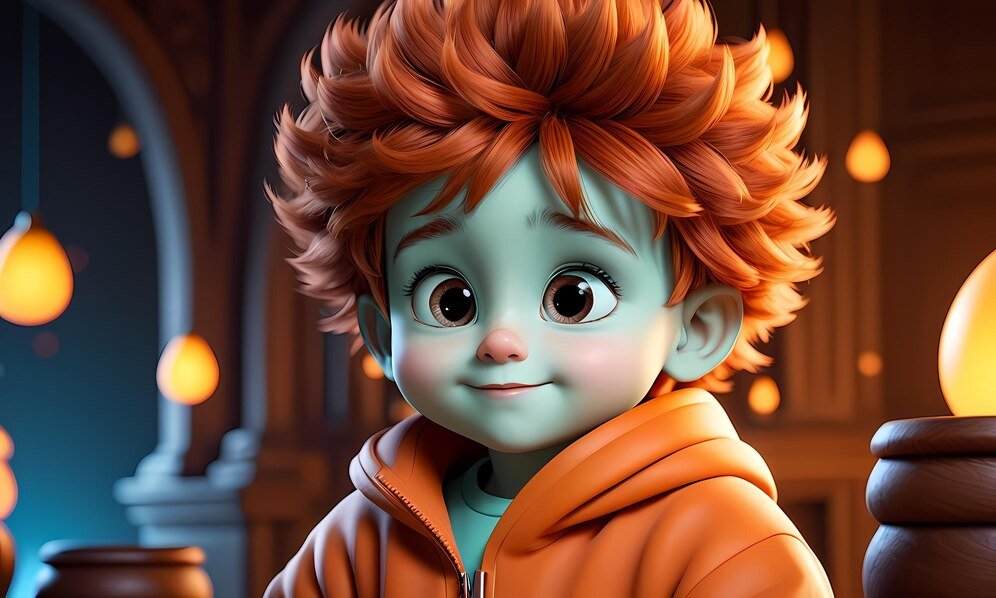Whether they are shown in the pages of a book, the scenes in a film, or the exchanges in a video game, characters are what give stories in the storytelling genre its vitality. They act as emotional messengers, plot developers, and linkers between viewers and made-up worlds. Artificial intelligence (AI) and other technological advancements are reshaping the storytelling environment at a rate never seen before. Character AI, a breakthrough in digital character creation that promises to completely change user interaction and alter interactive narratives, is at the vanguard of this shift.
Understanding Character AI

A paradigm change from traditional scripted characters to dynamic, responsive creatures within digital surroundings is represented by character AI, short for character artificial intelligence. AI-driven characters, in contrast to static ones constrained by preset scripts, are able to learn, adapt, and make decisions on their own in response to user interactions or other story components. This adaptive behavior adds new levels of engagement and immersion in storytelling experiences, while also improving the realism and nuance of character portrayals.
Evolution and Development of Character AI
Character AI is a product of advances in cognitive computing, natural language processing (NLP), and machine learning. For non-player characters (NPCs) in video games, early implementations concentrated on simple decision-making algorithms that let them respond to player actions and choose preset routes. But the powers of AI-driven characters have increased along with the sophistication of AI technologies. Character AI systems of today have intricate algorithms that allow characters to show emotions, pick up on cues from others, and change over time to reflect the complex and multifaceted nature of human personalities.
The Role of Character AI in Contemporary Storytelling
Because character AI provides unprecedented degrees of interaction, customisation, and narrative richness to both producers and spectators, it plays a vital role in defining modern storytelling. AI-driven characters work as dynamic allies, opponents, or guides in interactive media like video games, virtual reality (VR), and augmented reality (AR). They react dynamically to the decisions and actions made by the user. This dynamic reactivity encourages unique narrative experiences catered to specific user preferences and playstyles in addition to improving immersion during gameplay.
Key Features and Benefits of Character AI
-
Enhanced Immersion: Character AI increases the sense of immersion by connecting the virtual and real worlds with lifelike actions and responses. AI-driven characters elicit deeper emotional ties from users, increasing the significance and interest of interactions.
-
Personalized Experiences: Character AI adjusts language, motivations, and story arcs to match user preferences and behavior patterns, enabling individualized storytelling experiences. Users can explore a variety of story lines and conclusions because to this degree of personalization, which promotes replayability and user engagement.
-
Dynamic Storytelling: Character AI presents non-linear storytelling dynamics, in which plot developments and outcomes change in response to user activities, in contrast to standard linear narratives. By giving users agency and control over the story’s course, this adaptive storytelling technique produces original and surprising storytelling experiences.
Applications of Character AI Across Industries
Character AI is now used in a variety of sectors outside of entertainment, such as customer service, healthcare, and education:
-
Education: Virtual mentors and AI-driven tutors tailor instruction and content delivery to each student’s unique requirements and learning preferences, thereby personalizing the learning process.
-
Healthcare: Character AI-powered virtual health aides can monitor health parameters, give individualized medical care, and offer emotional support based on each patient’s unique profile.
-
Customer Service: AI-powered virtual assistants improve customer service by answering questions in real time, making tailored recommendations based on the tastes and activities of the user, and giving real-time assistance.
Ethical Considerations and Challenges
Character AI has several problems and ethical issues that need to be addressed even though it has several benefits in terms of user engagement and interactivity:
-
Bias and Representation: Diverse AI training data sets and development methodologies, as well as careful thought, are needed to create AI-driven character designs that don’t reinforce prejudices and preconceptions.
-
Privacy and Data Security: In order to safeguard user confidentiality and trust, AI-driven interactions require the gathering and processing of user data, which calls for strict privacy regulations and data security precautions.
-
Ethical AI Development: Accountability for AI-generated material and interactions as well as openness in AI decision-making processes are necessary to guarantee that AI-driven characters follow moral guidelines and norms. in Character AI
Character AI is expected to continue growing and innovating in the future due to advances in AI technologies, computing power, and user-centric design approaches. Important developments and trends include:
-
Emotional Intelligence: AI-driven characters with improved emotional intelligence capabilities, allowing them to more correctly and sympathetically identify and react to human emotions.
-
Natural Language Understanding: Enhanced natural language processing (NLP) technologies that let AI-generated characters converse with users in a more organic and pertinent manner.
-
Interactive Narrative Design: AI-powered innovations in interactive narrative design that produce intricate branching plots, numerous endings, and dynamic character interactions that are customized to the preferences of the user.
Conclusion
In summary, Character AI is a revolutionary step forward for interactive storytelling, providing never-before-seen levels of originality, engagement, and immersion for both audiences and artists. Artificial intelligence (AI)-driven storytelling has the potential to revolutionize the creation, consumption, and experience of stories on a variety of media platforms by giving digital characters intelligence, personality, and agency. The potential for innovation and discovery in storytelling powered by Character AI is boundless, as technology advances and AI capabilities grow. Character AI will continue to improve and enhance storytelling in the digital era if these opportunities are wisely embraced.


